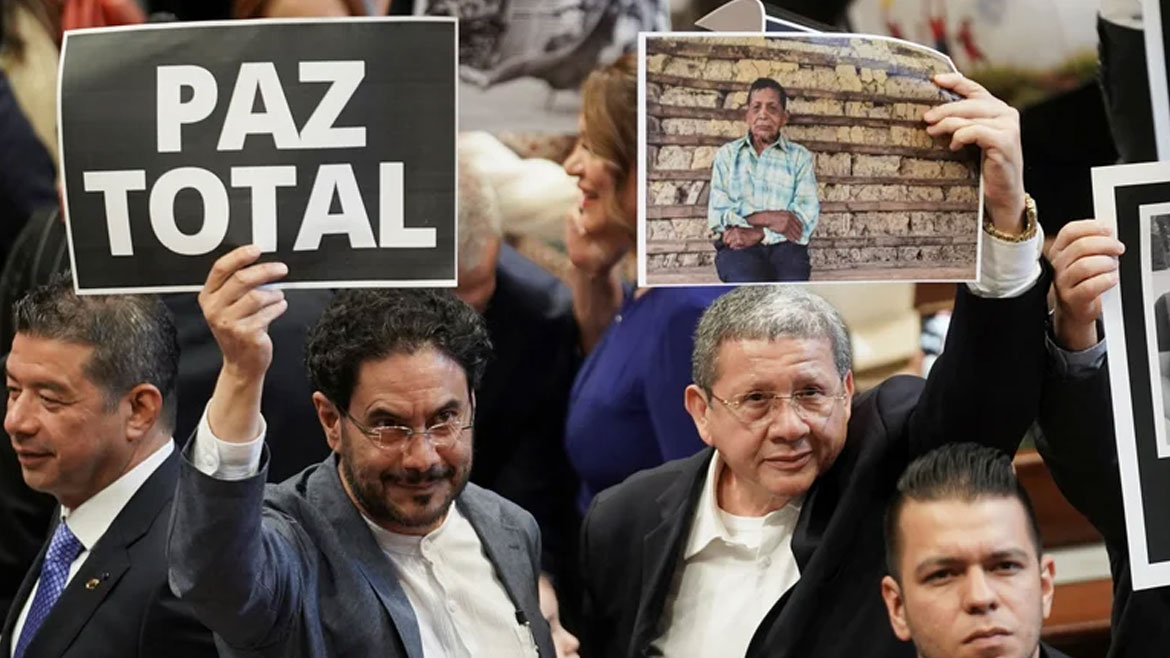Colombia’s security forces and the country’s largest illegal armed groups will uphold a temporary ceasefire to facilitate negotiations, according to President Gustavo Petro.
In an announcement, Petro said that his government had agreed to a bilateral ceasefire with guerrilla group ELN, paramilitary organization AGC, dissident organizations of the now-defunct guerrilla group FARC and Caribbean organized crime group “Los Pachenca.”
The six-month ceasefire “will have as its main objective to suspend the humanitarian effect on the population in general and, in particular, of the ethnic-territorial and peasant communities and the State, to suspend offensive actions and to avoid armed incidents between the public forces and the aforementioned illegal organizations.”
The ceasefire will be monitored by the Ombudsman’s Office as well as the United Nations and the Organization of American States.
The announcement came after the end of a first round of peace talks with the ELN in the Venezuelan capital Caracas.
Secret negotiations to dismantle the AGC, FARC dissident groups “Segunda Marquetalia” and “Southeastern Bloc” and Los Pachenca, have also been taking place.
The talks and the multiple ceasefires are part of Petro’s “Total Peace” policy, which seeks to dismantle the illegal armed groups.
In the case of the ELN, successful talks would lead to a peace agreement to end the guerillas’ insurgency that began in the 1960’s already.
The talks with the other groups are of an entirely different character as they were formed by dissidents of previous peace processes that followed deals with the now-defunct paramilitary organization AUC and guerrilla group FARC respectively in 2005 and 2016.
The negotiations with the paramilitary and guerrilla dissidents have been taking place on unknown locations with mediators appointed by the government and the illegal armed groups.
The groups that agreed to the bilateral ceasefire are by far the largest illegal armed groups in Colombia and held responsible for much of the violence in the country.


